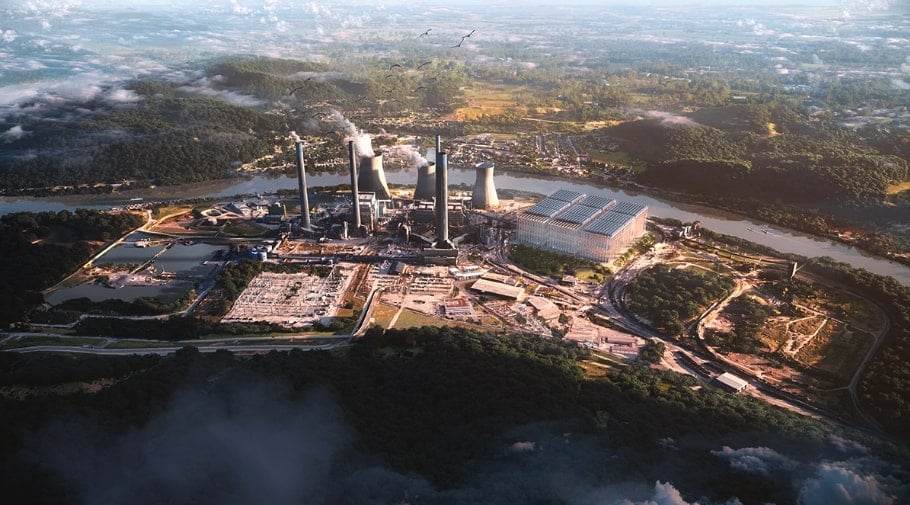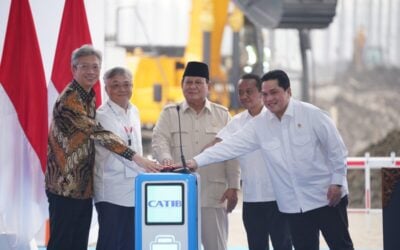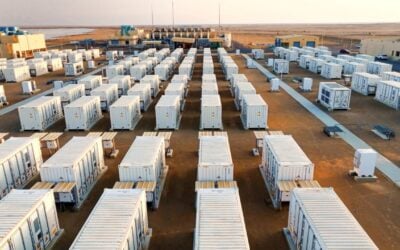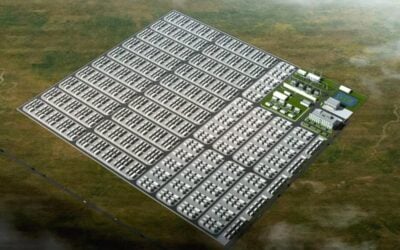
Energy Vault has secured a US licensing deal for its gravity energy storage technology and awards covering its other technologies there and in Southeast Asia, it said in its Q2 results.
The company saw revenue of US$39.7 million in the three months to June 30 with US$15 million shifted into the third quarter, although it was still in line with company expectations, Energy Vault said.
Enjoy 12 months of exclusive analysis
- Regular insight and analysis of the industry’s biggest developments
- In-depth interviews with the industry’s leading figures
- Annual digital subscription to the PV Tech Power journal
- Discounts on Solar Media’s portfolio of events, in-person and virtual
The main driver of revenues was its US projects, which cover battery storage, its gravity technology and green hydrogen – CEO Rob Piconi discusses these and more in a lengthy interview with Energy-Storage.news in June (Premium).
It had a GAAP gross margin of 9.9% but a net loss of US$26.2 million and an adjusted EBITDA loss of US$18 million. It reaffirmed full-year guided revenue of US$325-425 million, a gross margin of 10-15%, and an adjusted EBITDA loss of 50-70 million.
Quarter highlights included a License and Royalty Agreement in the US market with a locally-based renewable energy developer for multiple named states. The license-only portion of the contract will generate revenue of US$33 million along with project royalty streams of 90% or greater gross margin tied to all future project deployments within the named states, the company said.
The Agreement encompasses a new application of its EVx gravity energy storage technology which will be ‘unveiled in more detail later’, something Piconi alluded to which he claimed would deliver the “lowest cost of storage in the world”.
It also started commissioning its first gravity storage project in Rudong, China, which was deployed through a similar licensing agreement with a company called Atlas Renewables.
On the US battery storage side, Energy Vault said it continues to progress projects with developers Jupiter Power and NV Energy for commercial operation dates (COD) in Q3 and Q4 this year and has received a new 400MWh contract with Jupiter Power for deployment in 2024.
Furthermore, Energy Vault claimed a that a ‘major southeast Asian sustainable energy company’ has awarded it two energy storage projects totaling 500MWh which will be booked in the second half of 2023 as part of a framework to procure a minimum of 2,700MWh of energy storage over the next three years.
That project will be fulfilled by Energy Vault’s portfolio of short duration (batteries), long-duration (gravity) and multi-day (green hydrogen) technologies integrated into its Energy Management System (EMS) platform. It is currently building a microgrid in California encompassing all three, for utility PG&E.
Commenting on the results, Piconi said: “Our technology-agnostic software platform coupled with deep domain, operational and project implementation expertise of our team is showing well as we begin system commissioning and final project turnover on our first systems.”
“These strengths and unique technology portfolio form the foundation that allows us to craft distinctive solutions for energy storage across short, long, and ultra-long duration needs throughout our global customer base. We will continue our obsession with serving customer needs with the best technology, talent and ‘fit for purpose’ approach that has allowed Energy Vault to be a global leader in energy storage within such a short period.”
The company’s gravity energy storage technology has had its fair share of critics and criticisms and Energy-Storage.news put some of these to Piconi in June’s interview.






